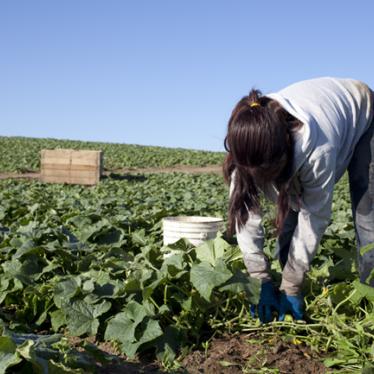Excessively severe drug laws have deprived thousands of children of their parents, Human Rights Watch said today. Governor Pataki and New York politicians in Albany are now debating legislation to reform these drug laws
Releasing a new report with the first statistics on the number of children in New York who have had parents sent to prison for drug offenses, Human Rights Watch said the statistics should spur a swift agreement on major reform of the state's drug laws.
"Children of incarcerated drug offenders are one of the collateral casualties of the state's war on drugs," said Jamie Fellner, director of Human Rights Watch's U.S. Program. "Disproportionately harsh drug sentences have not only led to the unnecessary incarceration of tens of thousands of low-level drug offenders, but also deprived thousands of children of their parents."
In Collateral Casualties: Children of Incarcerated Drug Offenders in New York, Human Rights Watch presents a statistical snapshot developed from state and federal data. Among the findings:
An estimated 23,537 children currently have parents in New York prisons convicted of drug charges.
An estimated 11,113 currently incarcerated New York drug offenders are parents of children.
Since 1980, an estimated 124,496 children have had at least one parent imprisoned in New York on drug charges.
Some 50 percent of mothers and fathers in New York prisons for drug convictions do not receive visits from their children.
Human Rights Watch has consistently urged New York to eliminate harsh mandatory minimum sentences for drug offenders and to authorize judges to tailor criminal sanctions that reflect the individual offender's conduct and other relevant factors.
Restoring fairness and proportionality to New York's drug laws would reduce the number of drug offenders needlessly sent to prison. For many low-level nonviolent drug offenders, alternatives to incarceration-including community-based sanctions and drug treatment programs-would be a "punishment that fits the crime." By reducing the number of offenders sent to prison, the state would also reduce the number of children who must suffer from losing a parent to prison.
"Safeguarding communities and protecting families from drug trafficking and drug abuse are important public interests," said Fellner. "But the means chosen to combat drugs should neither violate human rights nor inflict unnecessary collateral harm."
No New York agency tracks the number of children who have parents in prison. Human Rights Watch derived its figures from New York State Department of Correctional Services data on incarcerated drug offenders and from the results of a survey of a representative sample of New York prison inmates conducted in 1997 for the Bureau of Justice Statistics of the U.S. Department of Justice. The survey yielded data on such questions as the percentage of inmates who have children, the size of their families, current caregivers and the frequency with which the incarcerated parents are in contact with their children.







